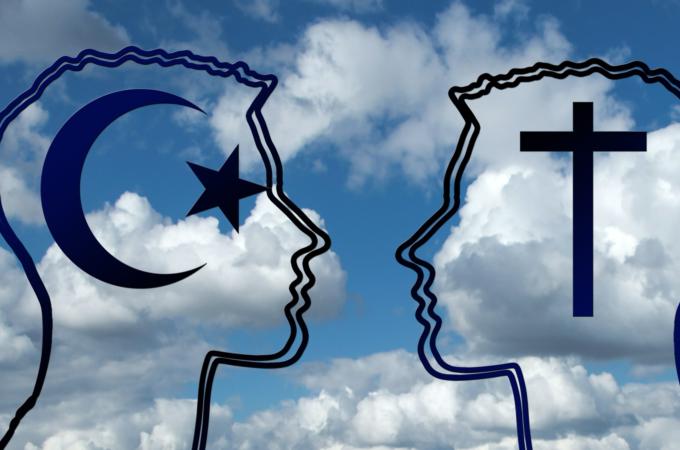One God, One humanity: Confronting religious prejudice
The third annual National Catholic-Muslim Dialogue took place March 6-8 at the University of St. Mary of the Lake outside Chicago, and focused on the theme of "One God, One Humanity: Confronting Religious Prejudice." In his opening remarks, the Muslim co-chair Dr. Sayyid Syeed observed how historically Catholics have ruled Muslims in different countries, or vice versa, but that "today, in North America, being neighbors is a reality, and it's critical for us to develop a vision so that people in other countries can find hope for their future."
In her opening address, Muslim educator Maria Khani from Orange County, California, said "We can do more than just have a meal together and talk. I need to be willing to make some changes in how I think about 'them.' It's time for us to say 'we,' not 'we' and 'them.'"
Khani observed that a statement of Dr. Martin Luther King fits Christians and Muslims today: "People fail to get along because they fear each other. They fear each other because they don't know each other. They don't know each other because they have not communicated with each other."
She noted that ignorance often leads to a deadly cycle: Ignorance to fear. Fear to hate. Hate to violence. Violence to war. War to isolation. "It all starts from ignorance," she said; "let's get to know one another. Peace is not just the absence of war, but the presence of harmony."
Khani offered two acronyms as guides for the way forward. The first: L.O.V.E. -- Learn about each other by listening to each other. Open your heart. Visit each other's worship places and homes. Explore together the Bible and the Qur'an.
The second: C.A.R.E. -- Capitalize on the common ground. Accept each other. Reach out to each other and restore relationships. Engage and expand your reach to grow, not to control.
In a following presentation, Dr. Sandra Keating, professor of Theology at Providence College, Rhode Island, focused on some aspects of Vatican II's Declaration on the Relation of the Church to Non-Christian Religions, Nostra Aetate, which stated:
"Over the centuries, many quarrels and dissensions have arisen between Christians and Muslims. The sacred Council now pleads with all to forget the past, and urges that a sincere effort be made to achieve mutual understanding and to preserve as well as to promote together for the benefit of all humankind social justice and moral welfare, as well as peace and freedom" (no. 3).
We want to allow a new relationship to be formed, said Dr. Keating. "But one cannot rebuild trust with someone who one doesn't know."
In the evening, there was an event open to the public with both Catholic and Muslim keynote speakers. Dr. Rita George-Tvrtkovic, associate professor of theology at Benedictine University in Illinois, focused her remarks on confronting religious prejudice.
"The first step is to recognize that such prejudice is much more pervasive and ingrained in our own religious communities than we think," she said, relating that a recent study by the Georgetown Bridge Initiative reveals that Islamophobia is very strong among Catholics. "From the Georgetown study, it's clear that Catholics have to get their own house in order." She noted that old prejudices are rooted deep in our communities, and many have been influenced by religion itself.
Dr. Tvrtkovic encouraged Catholics and Muslims to work together on current issues like the #MeToo movement, gun violence, immigration, and to team up in serving refugees. "Christians and Muslims, with the help of our allies of other religions and those of no religion -- we all have to persevere in this work together," she said. "Progress is not guaranteed, as we have seen that even our concerted efforts to fight religious prejudice since 9/11 have yielded spotty results, fits and starts, rather than gradual and steady improvement."
Muslim Professor Irfan Omar of Marquette University noted that no religion is an island. "The goal of dialogue is to help one another. To share insight and learning; to humanize the other in our own eyes; to search for the power of love and to care for one another," said Omar. "There needs to be a sincere engagement to learn about the other."
Omar shared that the Qur'an sees diversity as a given, not a problem. "How do we conduct ourselves with those who are different?" he asked. "We have no choice but to live inter-relationally and inter-religiously." Omar quoted a statement by Pope Francis in November 2017: "All of us are God's children. All of us have a responsibility to accept each other as brothers and sisters."
"How," asked Omar, "do we accept, respect and collaborate with the 'other'? In the end, what is most important is not what each believes, but whether we act on what we believe."



















